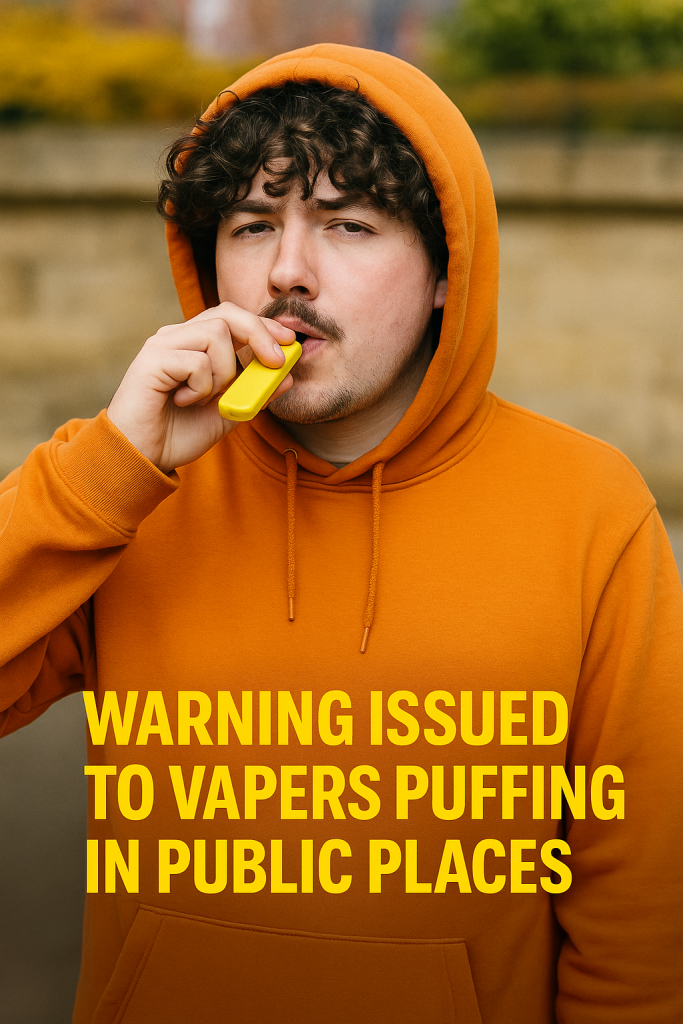In a decisive move to address rising concerns over antisocial behaviour related to vaping, authorities have issued a stringent warning to the public: vaping in designated public spaces could result in significant fines starting in 2024. This crackdown aims to promote healthier public environments and reduce nuisance complaints associated with vaping in communal areas.
The new legislation, which comes into force early this year, makes it illegal to vape in a wide range of public places, including parks, bus stops, shopping centres, and other crowded urban areas. Officials have emphasized that this policy is not simply about the health implications of vaping, but rather about maintaining public order and respecting shared spaces.
Vaping in public has increasingly been linked to antisocial behaviour, with local councils receiving growing numbers of complaints regarding the disruptive nature of public vaping — from secondhand aerosol clouds to concerns over youth exposure in communal environments. Public health experts have also noted that vaping in crowded areas can aggravate respiratory issues for vulnerable groups, further supporting the rationale behind the ban.
Under the new law, individuals caught vaping in these prohibited public zones face hefty fines that could reach several hundred pounds. Enforcement will be carried out by local authorities and law enforcement officers, who will be equipped to issue on-the-spot penalties. Repeat offenders may see increased sanctions, including higher fines and potential legal action.
“This is a firm but fair approach to preserving the comfort and safety of all citizens,” stated a government spokesperson. “We want to encourage vapers to use designated areas or private spaces while protecting the wider community from the negative impacts of vaping smoke.”
Advocacy groups for smokers and vapers have expressed mixed reactions; while some acknowledge the importance of reducing antisocial behaviour, others worry this may unfairly penalize individuals who vape as a smoking cessation tool. Nevertheless, public health campaigns will accompany the enforcement rollout, focusing on educating vapers about responsible usage and the locations where vaping remains permitted.
In addition to public warnings, signage will be installed in key areas to alert vapers about the new restrictions. These signs will clarify banned zones and highlight the consequences of non-compliance, aiming to increase awareness and voluntary adherence before fines are issued.
Experts caution that while vaping is often considered less harmful than smoking tobacco, the social implications of vaping in public spaces have become a pressing issue. By addressing public vaping as part of broader antisocial behaviour strategies, authorities hope to foster cleaner, safer, and more respectful urban environments for all citizens.
Members of the public are encouraged to familiarize themselves with the new regulations and comply accordingly. The government has made resources available online to help explain where vaping is prohibited and provide guidance for those seeking cessation support alternatives.
As these new rules take effect, it is clear that the message to vapers is firm: puffing up in public areas could cost you — both socially and financially.



